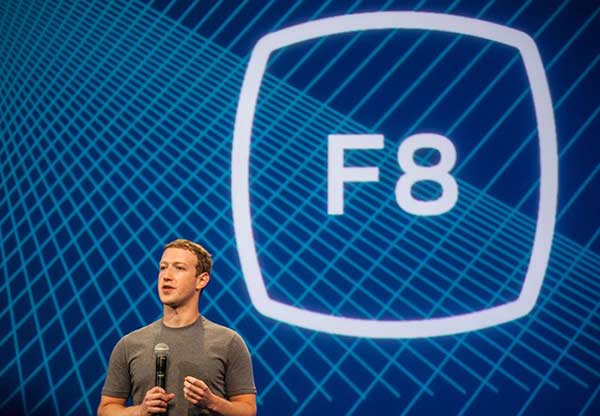Facebook has wrapped up its biggest development meeting of the year. The social-networking giant laid out a 10-year strategy, which includes research in artificial intelligence, chat bots and a heavy dose of virtual reality.

Mark Zuckerberg speaks at Facebook Developer Conference
With more than 900 million active monthly users, Facebook Messenger is the fastest growing app in the U.S. Now, it's targeting businesses.
Facebook CEO Mark Zuckerberg launched Messenger Platform - which allows developers to build bots - essentially automated services that use artificial intelligence and natural language to respond to questions.
Zuckerberg showed how Messenger users can send CNN's bot a news question and get a conversational response. If a user wants to order roses on 1-800-flowers, just send a message.
"Now, to order on 1-800-Flowers, you never have to call 1-800-Flowers again. LAUGHS edit...I've never met anyone who likes calling a business," he said.
"And no one wants to have to install a new app for every service or business they want to interact with. We think you should just be able to message a business in the same way you message a friend."
"The real challenge for businesses is how are they going to effectively use these bots to their advantage. Certainly you can do that with customer support but the language has to be correct, the timing has to be correct, so there's a lot of pieces there that I don't think really have been fine tuned yet," said Brian Blau, Research Vice President, Gartner.
Some of that fine tuning will come from Facebook's work in Artificial Intelligence, which it's already using to help inform the blind what's in a photo.
Facebook also introduced a live streaming video tab and said its "currently shipping" 600-dollar Oculus Rift headset as an unparalleled experience."
"I think virtual reality has the potential to be the most social platform, because you actually feel like you are right there with another person," Zuckerberg said.
Oculus touch-touch controllers are not available yet, but are expected to be available by the end of the year.
While there's no talk of VR accident insurance, Zuckerberg did share his humanitarian vision of Internet access for all.
He provided a glimpse of Facebook's Aquila - a solar powered drone designed to beam down a Wi-Fi signal for months at a time o parts of the world where people can't access the Internet.















